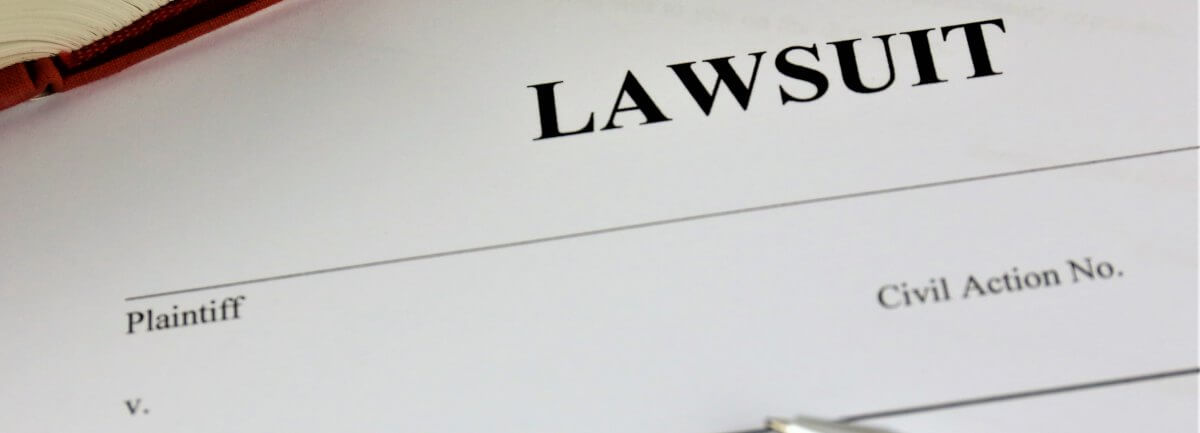What Types of Head Injuries Often Happen in Ohio Slip and Fall Accidents?

One of the biggest risks from a slip and fall is a head injury. Victims could hit their heads on the ground or on a fixed object (stairway railing, furniture, merchandise, etc.).
You could suffer a head injury from a fall in many locations, including grocery stores, shopping malls and apartment complexes. Seek medical treatment immediately if you experience even one symptom of a head injury, such as headaches or confusion.
You should also contact an experienced attorney. Friedman, Domiano and Smith’s Cleveland slip-and-fall lawyers are here to help. Building a case against a property owner is a complex task, but we have the legal knowledge and resources to fight for full compensation.
Zero upfront costs. Call to learn more: 216-621-0070.
How You Could Suffer a Head Injury From a Fall
Slip and fall accidents are dangerous because the fall is typically unexpected. Victims may not have time to react or put their arms out to brace themselves. If you slip and fall backward, there is virtually no way to protect your head from hitting the ground or a fixed object.
If you are walking around outside, such as on a sidewalk outside of a business, you could trip on a crack in the concrete. Your head could strike the ground or a heavy object, such as a parking space, fire hydrant or road sign.
Falling backward is more likely to occur if you slip on something like ice, snow or flooring that is wet from spilled liquid.
For example, if you slip on a wet floor inside a store, your head could strike a store shelf or the counter with the cash register. If you are in a furniture store or in someone else’s home, you could fall and hit your head on a piece of furniture, such as a couch or chair. If you fall down a staircase, you could strike your head on a step or the stairway railing.
Sometimes head injuries occur even if you do not hit your head. For example, you might fall in such a way that you avoid hitting your head on anything. However, if the fall was violent or jarring enough to shake your head violently, you could still suffer a concussion.
Elderly people have a higher risk of suffering a head injury in a fall than people who are younger. One primary reason for this is that the elderly may have trouble walking or struggle with balance. They may also be weaker, which makes it harder for them to break their fall without being injured.
Children also have an increased risk of suffering a head injury in a fall. Younger children especially can suffer significant damage as their brains are still in the development stage.
Given the potential severity of your injuries, you need an experienced lawyer to help you seek compensation. The legal process can be complicated to navigate on your own, and the at-fault party is going to work hard to avoid accountability.
Head Injuries From Falls in Cleveland, Ohio
These are some of the most common head and brain injuries that could be caused by slip and fall accidents:
Concussion
Hitting your head when you fall could cause your brain to move around inside of your skull, resulting in a concussion. However, a concussion can happen even without a blow to the head, such as if your head and neck are quickly thrown forward and backward.
Concussions can destroy brain cells and cause harmful chemical reactions in the brain. While victims are likely to recover from a mild concussion in a week or so, more severe concussions could affect victims for much longer. Symptoms could even persist ongoing, hurting your ability to do simple daily tasks or things you enjoyed before the injury.
Closed Head Injury
A blow to the head could also result in a closed head injury with bruising or bleeding. Bleeding can cause a buildup of pressure in the brain, which could cause lasting brain damage. In some cases, surgery may be needed to open the skull and allow the pressure to dissipate.
Hematoma
A hematoma is another way of a saying blood clot in the brain. The clot presses on the tissues in the brain, which could impair brain function. These clots result when blood vessels rupture on the outer part of the brain.
Contusion
A contusion is another word for bruise. When you fall and hit your head, your brain could get bruised, which could cause bleeding. Sometimes bruises will heal on their own, but there are times when doctors need to do surgery to prevent lasting brain damage.
Skull Fracture
A sharp blow to the head could result in a fracture of your skull. While the initial injury is to the bone, a skull fracture is probably going to cause a brain injury as well. This is because a fractured skull leaves less of a shield to protect the brain from further harm.
Diffuse Axonal Injury
This is also called a shear injury and it is one of the most dangerous kinds of brain injuries. A diffuse axonal injury occurs when the brain rotates inside of your skull. Rotation could cause shearing or tearing of nerve fibers, which are also called axons. These injuries often put the victim into a coma.
Hemorrhage
A hemorrhage is bleeding inside of your skull, either on the outside of the brain or inside your brain tissue. Some hemorrhages are relatively minor, while others can cause significant bleeding and even brain damage. The worst type of hemorrhage is called an intracerebral hemorrhage.
Lacerations
This is a severe cut on the scalp. These injuries are common among children who slip and fall. Lacerations could cause uncontrolled bleeding, requiring stitches to close the wound.
Symptoms of Head Trauma From a Fall
Many head injuries cause serious symptoms right away, such as a loss of consciousness or excessive bleeding. However, there are many other symptoms that may indicate a head injury. You should not take these symptoms lightly. Waiting to seek treatment could result in permanent brain damage.
Some common symptoms of a head injury include:
- Confusion
- Loss of balance
- Headaches that continue to get worse
- Stiffness in your neck
- Trouble seeing clearly/blurry vision
- One pupil being larger than the other
- Fluid coming out of your ears, mouth or nose
- Feeling unusually tired
- Feeling sick to your stomach or vomiting
- Not remembering what happened just before or after the injury
- Sensitivity to light
- Slurring words
- Feeling lightheaded
- Losing muscle control in your legs or arms
- Changes in behavior, such as unusually aggressive behavior
- Seizures
- Depression
- Tinnitus, also known as ringing in the ears
- Insomnia
- Sleeping an unusual amount
Contact Friedman, Domiano and Smith After a Slip and Fall
People often break bones or suffer head injuries when they slip and fall. Despite the severity of your symptoms and the cost of your treatment, property owners may try to avoid liability for your injuries. That is why you need an experienced lawyer fighting for you.
Friedman, Domiano and Smith has built a reputation of fighting for injured victims in Northeast Ohio, and we have secured millions in compensation on their behalf. Our services carry no upfront costs.
Schedule a free consultation. Call us at 216-621-0070.
Comments are now closed




Comments